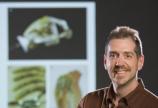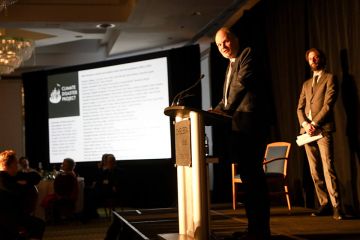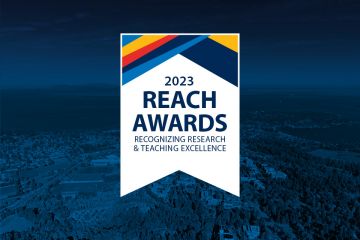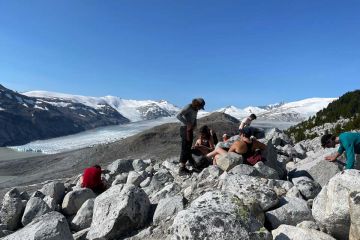International award salutes researcher’s science outreach activities
- Valerie Shore
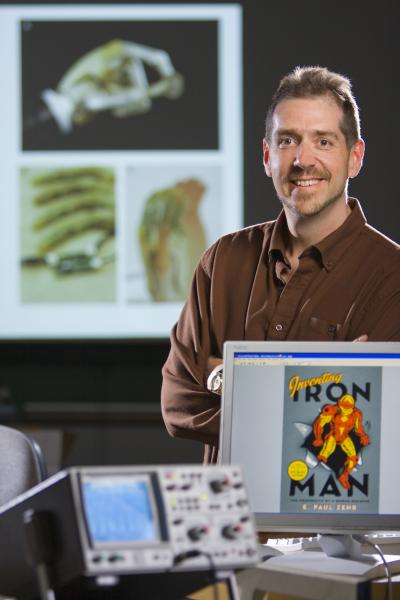
University of Victoria neuroscientist E. Paul Zehr remembers the precise moment when his research career shifted gears and science communications became a major part of his activities as a scholar and academic.
"It was a Friday afternoon in 2007 and I was searching Google Scholar for publication information on one of my papers," he recalls. He was pondering how many people his work actually affected. His most cited paper at the time had about 150 citations. But what if that meant only 150 people had read it? Was that acceptable impact?
"For me, the answer was no," he says. "I decided then and there that I wasn't satisfied with standard measures of academic productivity and impact and instead wanted to reach larger groups more directly."
That epiphany led Zehr on an path that last month won him the Society for Neuroscience's prestigious Science Educator Award, which recognizes outstanding achievement in public education and outreach in the field of neuroscience.
With nearly 40,000 members in more than 90 countries, the society is the world's largest organization of scientists and physicians devoted to understanding the brain and nervous system. And it's a pretty safe bet that none of them communicate their research in quite the same way as Zehr does.
His field of expertise is how the nervous system controls movement and rehabilitation of walking after stroke or spinal cord injury. In particular, he looks at how our arms and legs are coordinated when we walk, swim or cycle.
To communicate his work to the wider world, Zehr turned to an unorthodox source-comic book superheroes. They have a lot to teach us about how our bodies work and the untapped potential of our physical and technological abilities, he says.
"Science fiction and superhero movies represent opportunities for exploring scientific concepts in a pop-culture setting that's comfortable and familiar," says Zehr, who has authored three bestselling books: Becoming Batman (2008), Inventing Ironman (2011) and Project Superhero (2014). A fourth book, Something Superhuman, is due for release in fall 2016.
In addition, Zehr reaches many other audiences through live presentations, book chapters, blogs, radio and TV appearances, and the UVic Speakers Bureau.
In 2008, in his other role as director of UVic's Centre for Biomedical Research, Zehr organized Victoria's first Caf&e#180; Scientifique, an informal discussion series that gives the public the chance to hear local medical researchers discuss current research. Over 45 caf&e#180;s have been held since and they are routinely filled to capacity.
"Winning this award is confirmation from my peers that my decision to use pop culture to promote science was the right way to go," says Zehr, who urges his research colleagues to make every effort to explain to the public what they do.
"Scientists have a special role in that our society continues to rely more and more on science with fewer and fewer people understanding it," he says. "We don't own the science; we just got it first. It's up to us to share it with others if we really want to make a difference."
Photos
In this story
Keywords: teaching, award, exercise science
People: Paul Zehr

